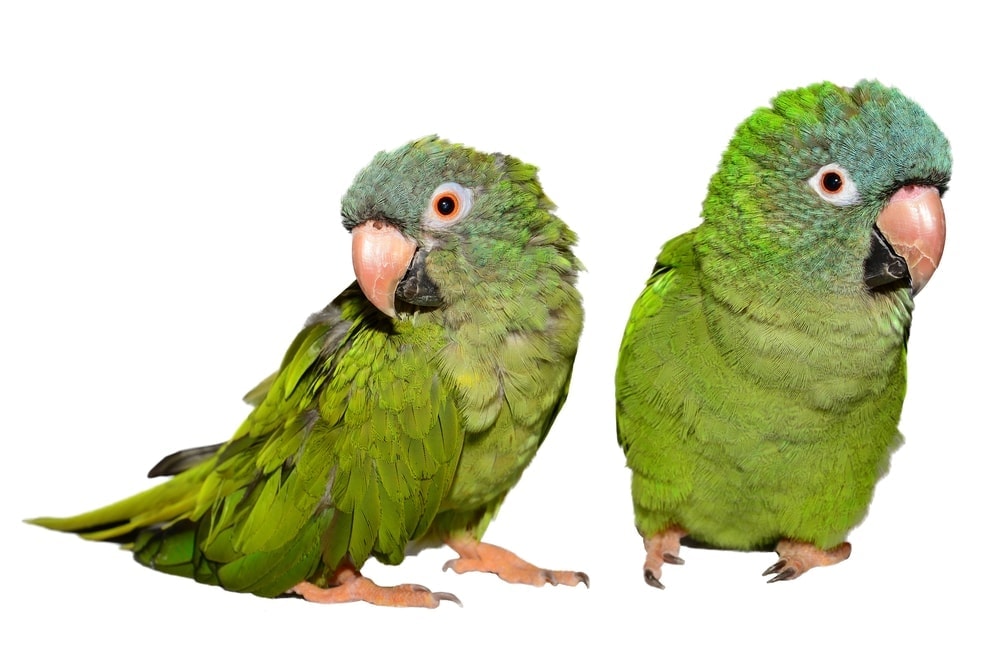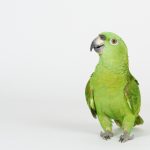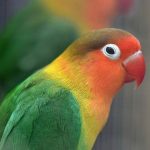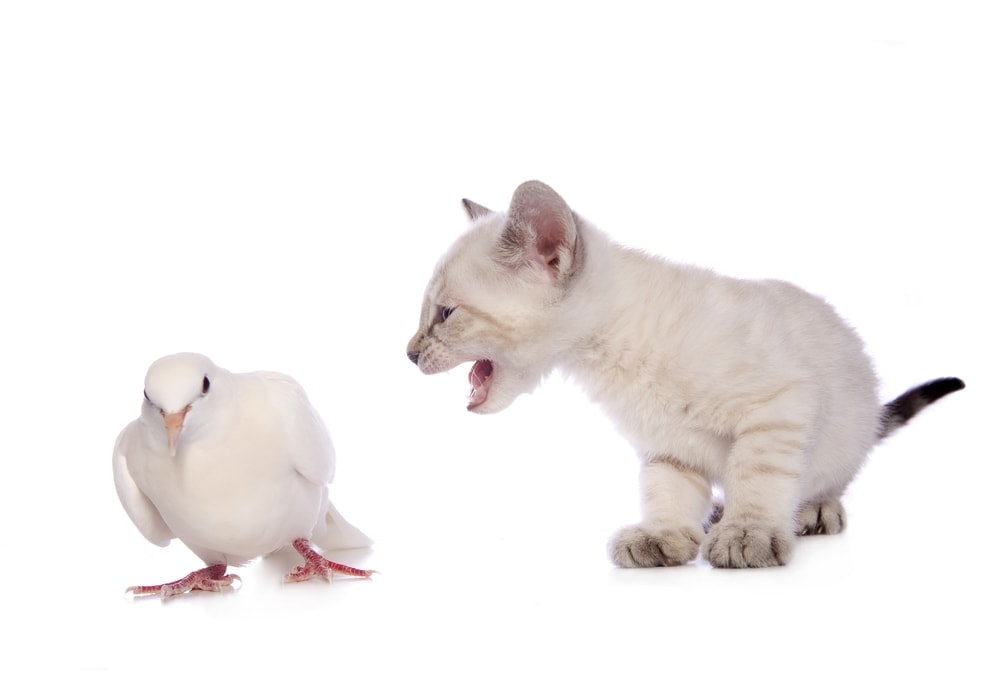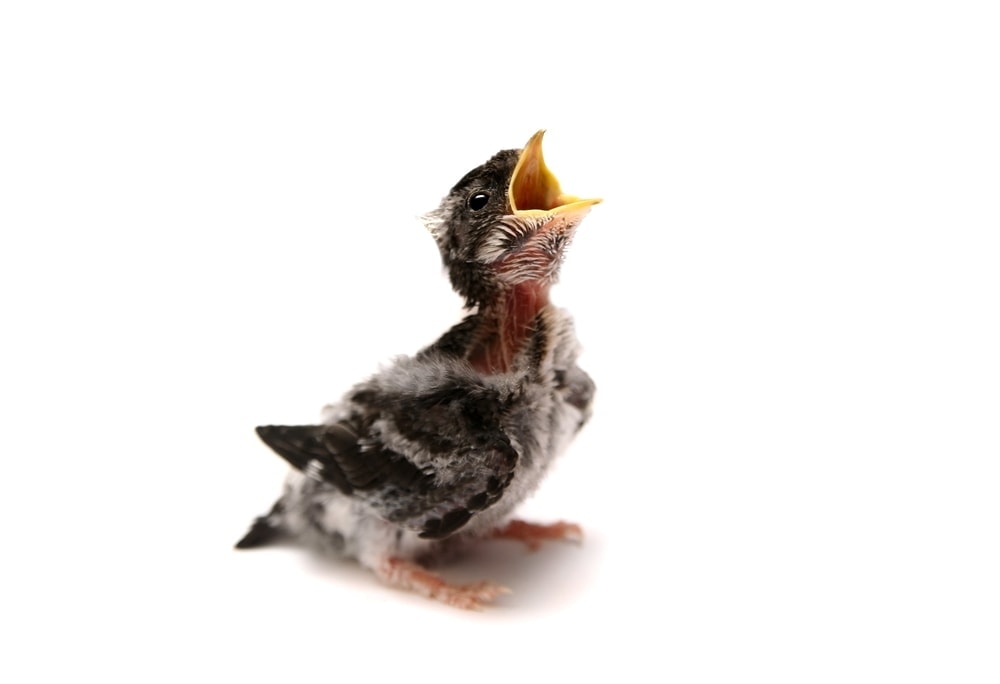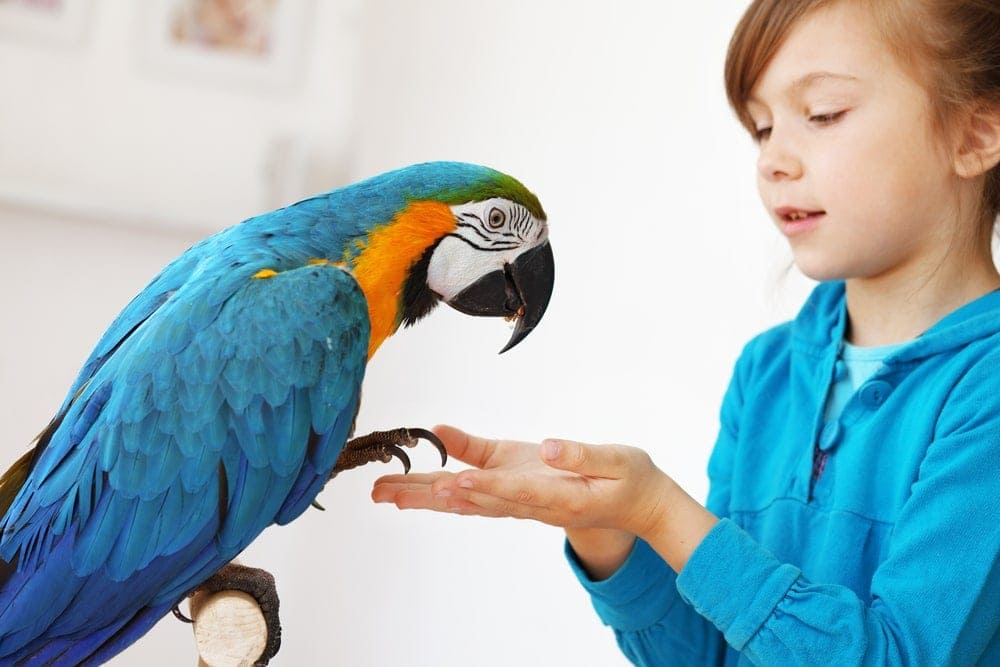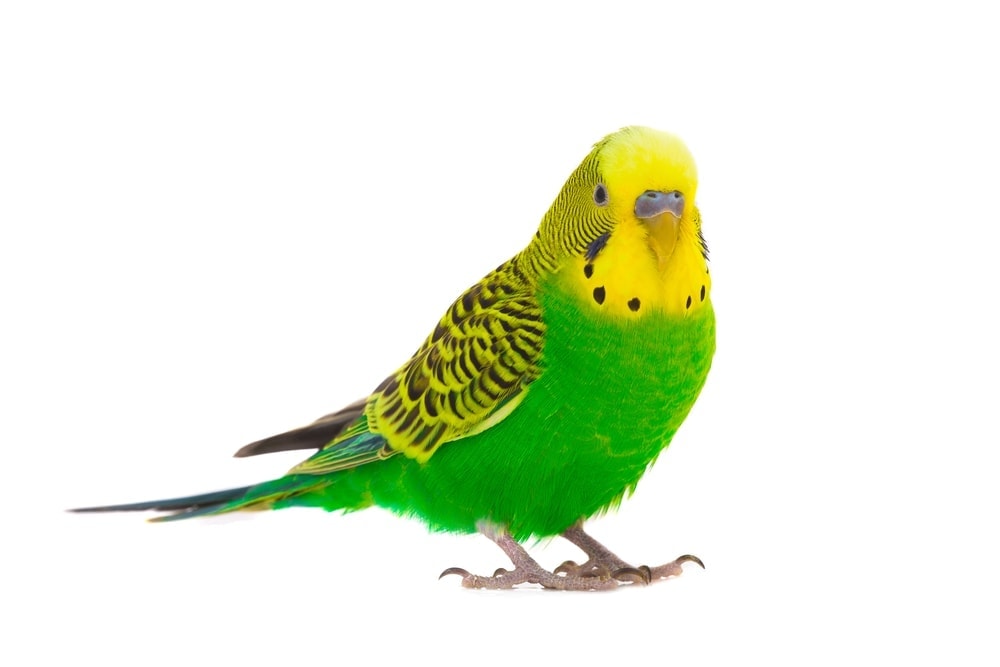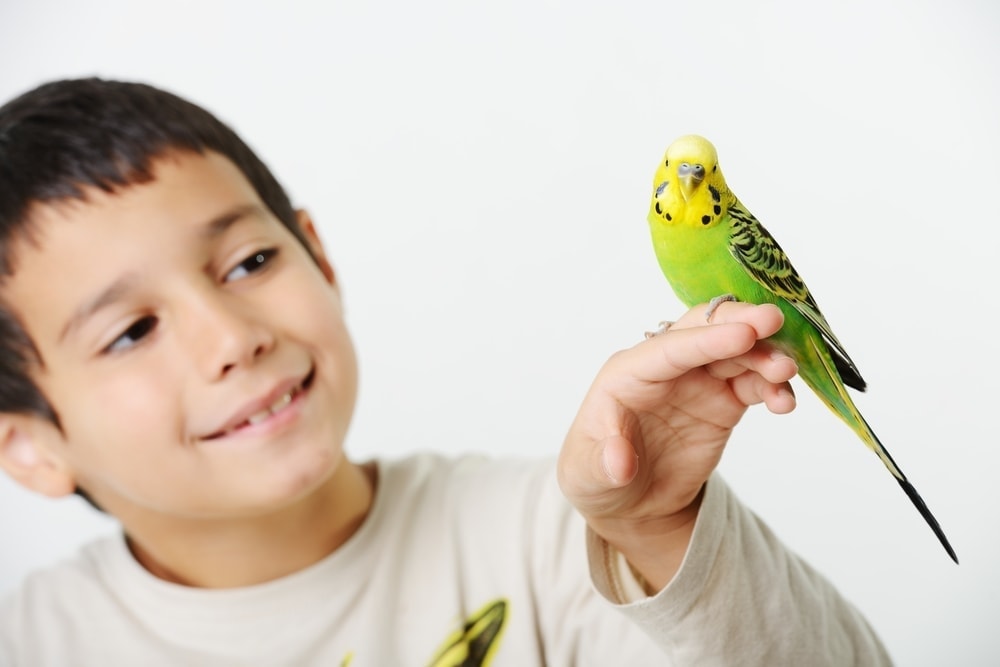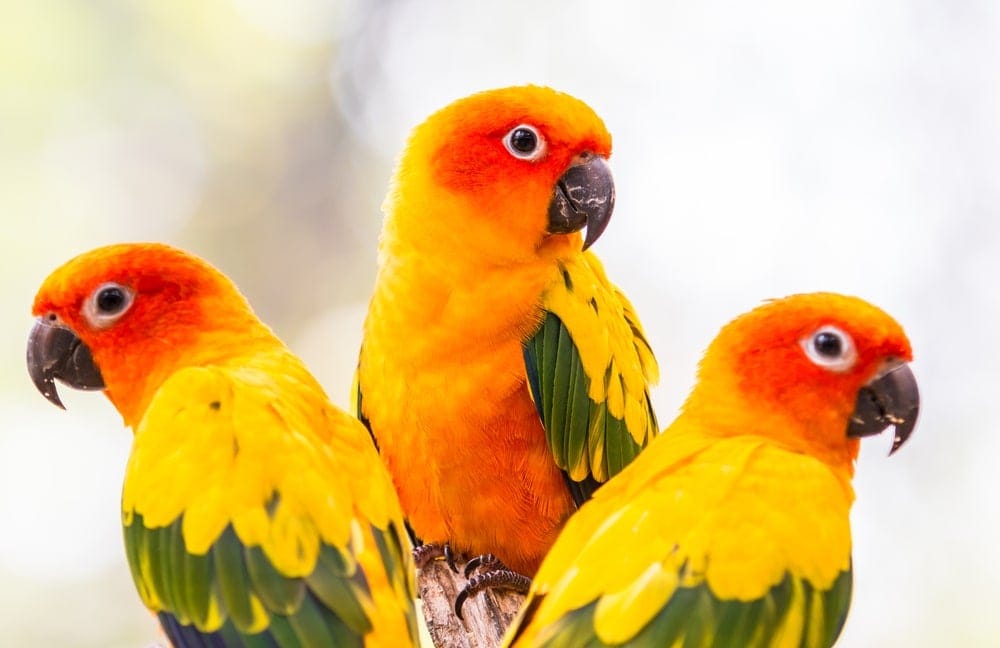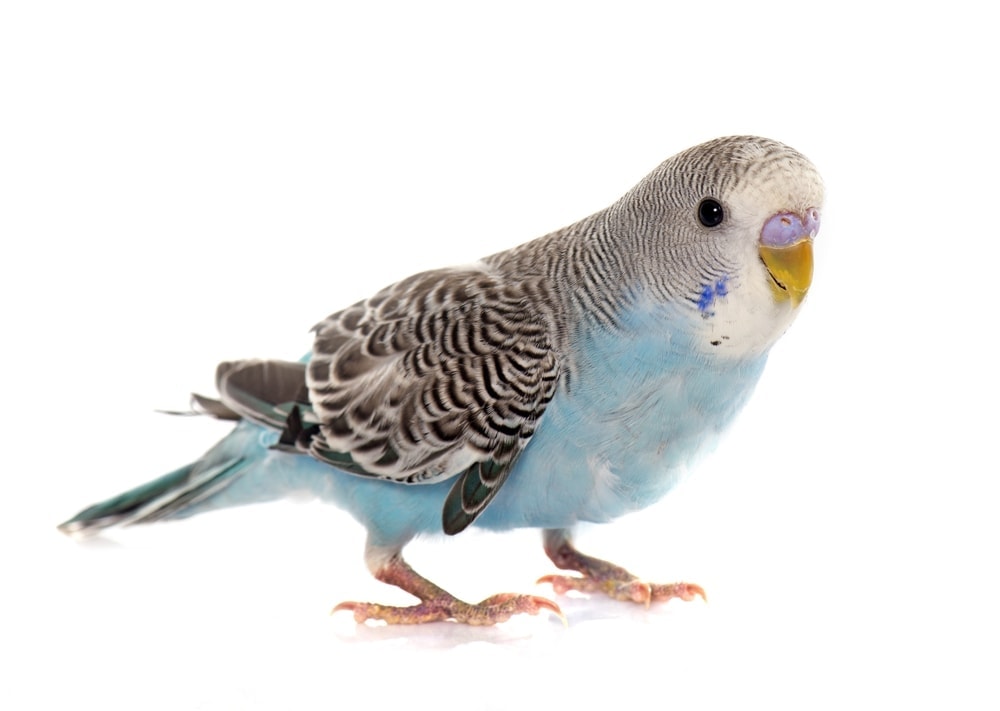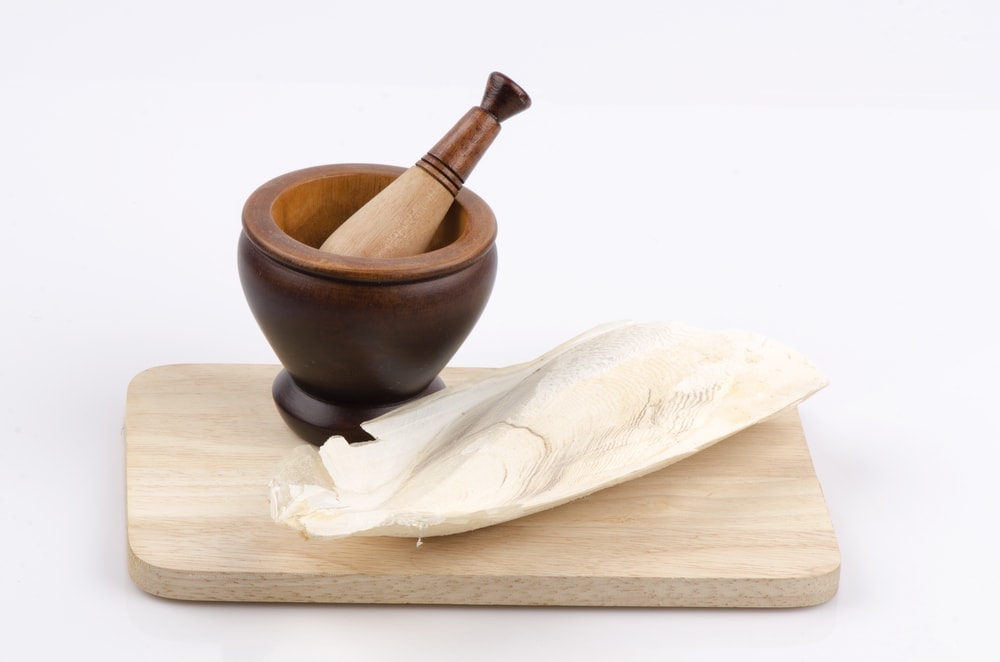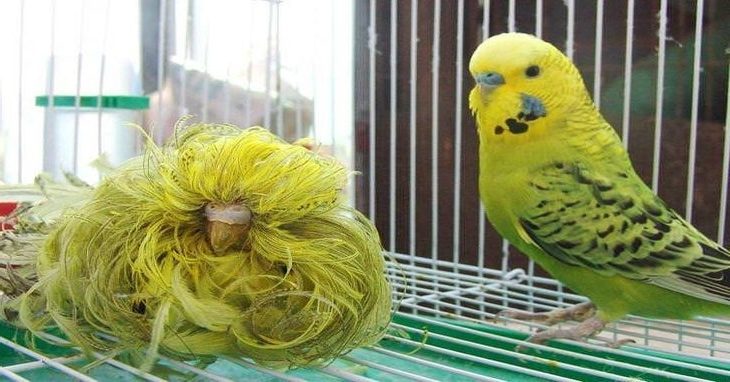The sheer intelligence of the Blue Crowned Conure is impressive to say the least.
These birds are big talkers, which means endless hours of entertainment.
Appearance
The Blue Crowned Conure has a distinctive bright blue head, orange beak, and green plumage. It can grow up to 16 inches with a maximum weight of 165 grams.
Blue Crowned Conure Lifespan
These birds can live up to 20 years if they are properly taken care of on a regular basis. This makes them excellent long term companions.
The Blue Crowned Conure’s Personality
This bird is extremely intelligent and can learn to mimic many different words and phrases. It is a very energetic bird that needs plenty of exercise each day. These birds hardly ever bite and are actually quite gentle, making them a good choice if you have children.
You will, however, need to keep in mind that conures are not quiet birds. This is not the best choice for a pet if you live in an apartment. They become bored very easily, which can lead to a lot of stress. When these birds are stressed, they can start to self-harm by picking out their own feathers.
If you have one of these birds, you will probably get woken up by its various noises at least once in a while. While owning a Blue Crowned parrot can be somewhat frustrating at times, it is also incredibly rewarding. These birds are very loyal and affectionate towards their owners. They enjoy being handled and thrive on direct contact.
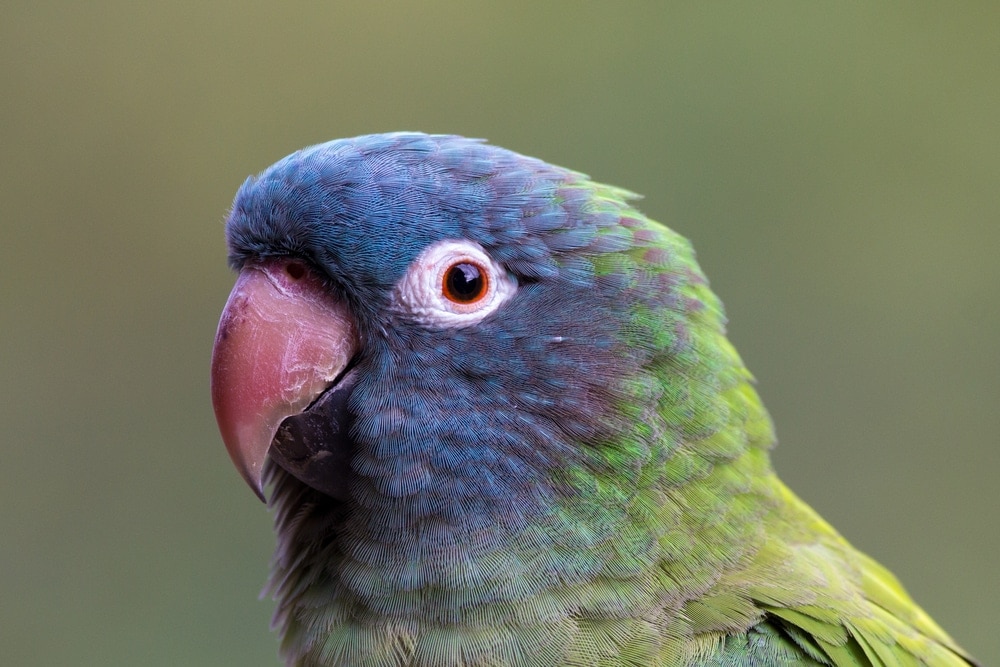
Natural Habitat
The Blue-Crowned conure can be found in the rainforests, woodlands, and savannahs of South America. This bird’s range goes all the way from Colombia to Argentina.
Blue Crowned Conure Care Guide
1. Blue Crowned Conure Diet
You should look for a high-quality parrot seed mix product that is specially formulated for conures. This will make up a vast majority of your bird’s diet. You also want to give it a decent amount of grass seeds, tree blossoms, and various fruits.
A well-balanced diet is absolutely necessary to keep your bird happy and healthy. Some of the foods that you can give to supplement its diet include carrots, cabbage, bananas, kale, oranges, and apples.
Feeding your bird only seeds and nuts will inevitably lead to serious health problems, so you should avoid doing this. These birds cannot survive for very long on a high-fat diet, which is why you don’t want to give them too many seeds each day.
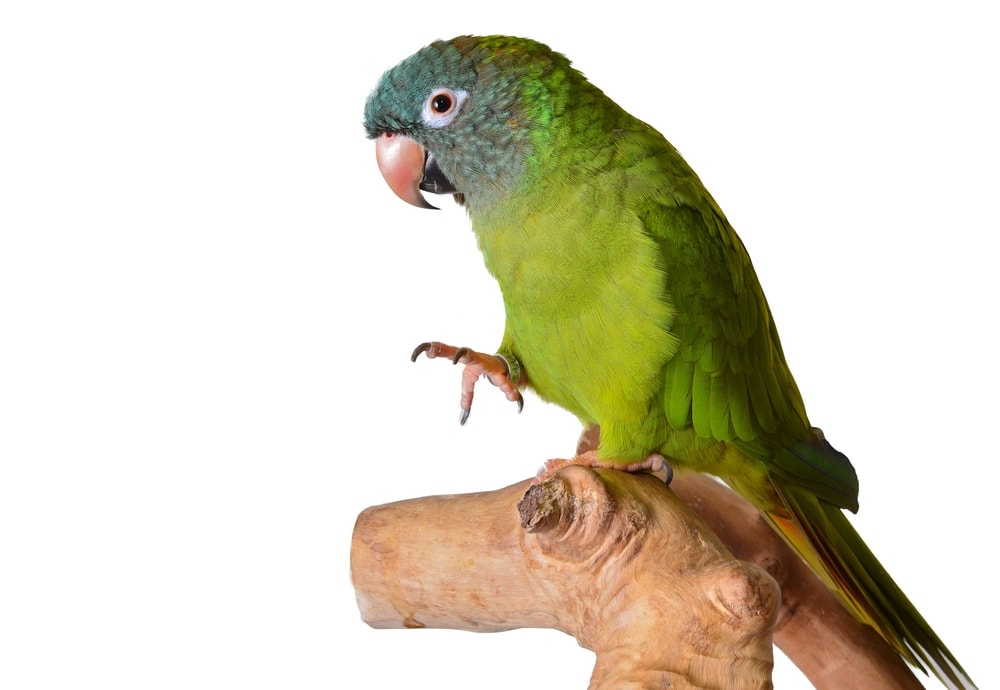
2. Environment
You will need to make a point of letting your bird outside of its cage for a minimum of three hours each day. While this might seem like a lot, it is absolutely necessary to keep your pet mentally and physically stimulated. These birds can begin self harming if they don’t get out of their cage enough each day.
You also need to make a point of putting lots of fun toys in your bird’s cage. It will need to have numerous things to keep itself occupied when you are not around. You’ll want to put in some ropes and ladders as well.
It is imperative that your bird has plenty of things to climb on, chew on, and play with. When you are looking for toys, make sure that you get ones that are made of soft wood material. These birds are big chewers, so you will need to make sure they don’t start gnawing on the cage or other things they aren’t supposed to.
The cage that you put your Blue Crowned Conure in should provide enough room for it to spread its wings and fly around. You simply cannot put one of these birds in a cramped environment and expect it to be okay.
You should have a freestanding structure for your bird to play on while it is outside of the cage. This will give it a fun way to get enough exercise and stimulation during this time each day. The happier your bird is, the healthier it is going to be as a whole.
3. Common Health Problems
These conures sometimes have problems with Beak and Feather Disease, Aspergillosis, and Psittacosis. One of the biggest issues with these birds comes from lack of stimulation. If they get to be too bored, self-mutilation can become a big issue. This can lead to infection, which could be fatal.
4. Grooming
Blue Crowned Conures are pretty good about keeping their beak trimmed by simply chewing on a daily basis. They will also keep their nails at a good length if you give them a rough perch to rest on inside their cage.
You should, however, provide your bird with a bowl of water for it to bathe in. This will give it a convenient way to clean itself when necessary.
Blue Crowned Conure Price
You could pay anywhere from $300 to over $1,000 for a Blue Crowned Conure. The total cost will depend on the breeder as well as the age and health of the bird. Young birds are almost always more expensive than older ones. Some of these birds cost as much as $1,500.
Conclusion
- Blue Crowned Conures can live up to 20 years if you treat them right on a daily basis.
- These birds should be given a high-quality seed mix that is formulated for conures.
- The gentle and affectionate nature of these birds is perfect for those who have small children.
- Make sure that you give your bird various fruits, vegetables, and seeds on occasion as treats.
- This might not be the best choice for a pet bird if you live in an apartment, as they can be pretty noisy.
- Get a spacious cage for your bird so that it will have plenty of room to fly around.
- Spend at least 2-3 hours with your conure outside of its cage every single day.
- If your bird starts picking out its own feathers, there is a chance that you aren’t giving it enough attention.
- You can keep your bird clean by offering it a bowl of water to bathe itself in its cage.
